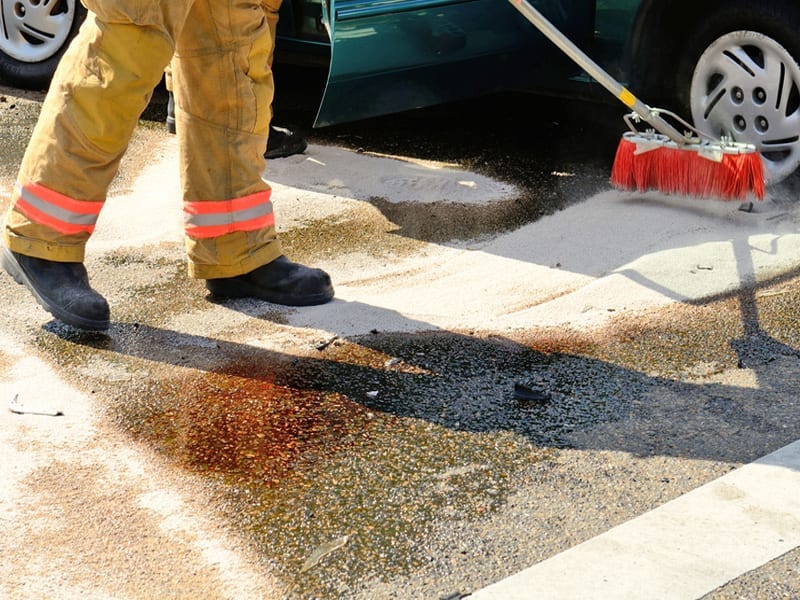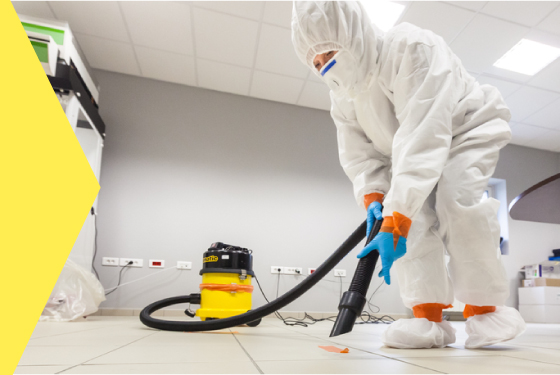Mold Remediation Solutions: Safeguarding Your Building from Mold And Mildew Damage
Mold Remediation Solutions: Safeguarding Your Building from Mold And Mildew Damage
Blog Article
Professional Biohazard Cleansing and Purification for Blood, Bodily Fluids, and Hazardous Products
The potential health and wellness risks linked with exposure to biohazards emphasize the vital demand for precise handling and detailed clean-up. As we browse the intricate landscape of biohazard clean-up, recognizing the nuances of laws, compliance, and the specific tools at play becomes critical in guaranteeing a secure and thorough decontamination procedure.
Wellness Risks of Biohazard Exposure
Direct exposure to biohazards postures significant health dangers that can lead to severe repercussions for neighborhoods and individuals alike. Biohazards encompass a variety of organic compounds, including blood, physical liquids, mold and mildew, microorganisms, infections, and various other possibly infectious materials. When individuals enter contact with these biohazards, whether via accidents, improper handling, or environmental exposure, they deal with the danger of contracting serious diseases or illness.
One of the main health and wellness dangers connected with biohazard exposure is the transmission of contagious diseases. Bloodborne pathogens such as HIV, hepatitis B and C, and different bacteria can be present in biohazardous materials, posturing a straight hazard to human wellness. Breathing in air-borne biohazards like mold spores or entering into contact with contaminated surface areas can additionally bring about respiratory system problems, allergies, and other damaging health results.
In addition, biohazard direct exposure can have long-lasting health implications, with some conditions materializing years after the initial contact (Blood Cleanup). Consequently, it is important to focus on appropriate biohazard cleaning and purification to alleviate these health and wellness risks and make certain the security of neighborhoods and people

Specialized Training for Biohazard Cleaning
When it concerns taking care of biohazard cleanup effectively and securely, specialized training plays a basic role in making sure correct decontamination procedures are adhered to. Biohazard cleanup requires certain understanding and abilities to successfully mitigate risks connected with bloodborne virus, physical fluids, and dangerous materials. Professionals learnt biohazard clean-up undertake strenuous instruction on exactly how to safely manage, get rid of, and deal with biohazardous materials to avoid contamination and direct exposure.
Specialized training for biohazard cleanup covers a series of necessary subjects, consisting of correct individual safety tools (PPE) use, bloodborne virus awareness, decontamination techniques, and dangerous waste disposal procedures. Individuals learnt biohazard clean-up are geared up with the required experience to analyze contamination degrees, recognize possible threats, and apply appropriate cleaning treatments in conformity with regulative requirements.
Constant training and education are paramount in the field of biohazard cleaning to remain updated on the most recent decontamination modern technologies, security methods, and guidelines. By buying specialized training, biohazard clean-up experts can successfully react to emergency clean-up scenarios and guard both public wellness and the atmosphere.
Importance of Correct Purification Techniques
Making use of correct purification techniques is essential in biohazard cleaning to successfully decrease and get rid of hazardous products wellness dangers. Effective purification not only makes certain the removal of noticeable traces of blood, bodily liquids, and other biohazards yet likewise targets unseen virus that may posture severe health dangers if not appropriately eradicated. By adhering to stringent purification methods, trained professionals can dramatically decrease the threat of exposure to hazardous microorganisms, viruses, and germs that can result in visit their website infections or conditions.
Correct decontamination strategies include making use of specialized tools and disinfectants that are particularly made to neutralize biohazards successfully. Thorough cleaning and sanitation of infected locations are necessary to stop the spread of virus and ensure a risk-free atmosphere for owners. In addition, the proper disposal of biohazardous waste following decontamination procedures is crucial in protecting against contamination of various other surface areas or people.

Tools and Devices for Safe Clean-up
When dealing with blood, physical fluids, or unsafe materials, biohazard cleansing professionals depend on specialized gear to lessen direct exposure dangers and extensively decontaminate the affected area. In addition, biohazard cleaning sets containing disinfectants, absorbing materials, and biohazard bags are utilized to securely contain and dispose of polluted items.
Advanced cleaning devices like hospital-grade anti-bacterials, HEPA-filtered vacuums, and fogging equipments are employed to sanitize surfaces and eliminate biohazards properly. Specialized equipment such as sharps containers and biohazard waste disposal containers are made use of to safely handle sharp things and biohazardous waste materials. By utilizing the ideal tools and devices, biohazard cleaning specialists can make certain a complete cleaning procedure that focuses on safety and security and decreases health risks for both workers and passengers of Recommended Reading the afflicted room.
Rules and Conformity in Biohazard Cleansing
Correct adherence to regulations and compliance standards is vital in biohazard cleansing to make certain the safety and security of both employees and the setting. Federal government firms such as OSHA (Occupational Safety And Security and Wellness Management) and the EPA (Epa) have actually developed details guidelines for biohazard cleanup procedures to lessen wellness risks and environmental contamination. These guidelines cover a variety of facets including the handling, transport, and disposal of biohazardous materials, in addition to the necessary training and safety devices required for personnel associated with the cleaning procedure.
Biohazard cleaning business must stay current with these guidelines to guarantee that their operations fulfill the needed security standards. Failing to follow these policies can result in extreme repercussions, including fines, lawsuit, and threatening the health of people and the atmosphere. By following rigorous guidelines and compliance actions, biohazard cleansing companies can properly alleviate risks and make certain a safe and thorough clean-up process for all events involved.
Verdict
Finally, biohazard cleansing and decontamination call for specific training, correct techniques, and adherence to laws. Exposure to blood, bodily fluids, and unsafe materials presents significant health and wellness risks, making it important to make use of the best tools and tools for risk-free cleanup. By complying with rigorous procedures and guidelines, experts can effectively reduce the threats associated with biohazard exposure and make sure the safety and security of both themselves and others.
As we navigate the elaborate landscape of biohazard clean-up, recognizing the nuances of policies, compliance, and the customized tools at play ends up being necessary in making check out this site certain a detailed and safe decontamination process. (Blood Cleanup)
When it comes to managing biohazard cleaning successfully and securely, specialized training plays a basic function in making certain proper decontamination procedures are complied with.Utilizing correct purification strategies is crucial in biohazard cleanup to efficiently eliminate dangerous materials and reduce health risks. In addition, biohazard cleansing packages having anti-bacterials, absorptive materials, and biohazard bags are used to safely dispose and contain of infected things.
Federal government companies such as OSHA (Occupational Security and Health Management) and the EPA (Environmental Defense Agency) have developed certain guidelines for biohazard cleanup treatments to lessen health and wellness risks and ecological contamination.
Report this page